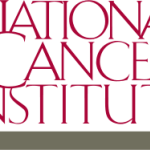- Industry: Government; Health care
- Number of terms: 6957
- Number of blossaries: 0
- Company Profile:
The National Cancer Institute (NCI) is part of the National Institutes of Health (NIH), which is one of 11 agencies that compose the Department of Health and Human Services (HHS). The NCI, established under the National Cancer Institute Act of 1937, is the Federal Government's principal agency for ...
An orally bioavailable inhibitor of the ADAM (A Disintegrin And Metalloprotease) family of multifunctional membrane-bound proteins with potential antineoplastic activity. Sheddase inhibitor INCB007839 represses the metalloproteinase "sheddase" activities of ADAM10 and ADAM17, which may result in the inhibition of tumor cell proliferation. The metalloproteinase domains of ADAMs cleave cell surface proteins at extracellular sites proximal to the cell membrane, releasing or "shedding" soluble protein etcodomains from the cell surface; the disintegrin domains of these multifunctional proteins interact with various components of the extracellular matrix (ECM). ADAM10 processes particular epithelial growth factor receptor (EGFR) ligands and appears to regulate Notch signaling through the cleavage of Notch and its related ligand delta-like ligand-1 (Dll-1). ADAM17 (also known as Tumor necrosis factor-Converting Enzyme or TACE) is involved in processing tumor necrosis factor (TNF) from its membrane bound precursor to its soluble circulating form and in processing ligands for the epidermal growth factor receptor (EGFR) family.
Industry:Pharmaceutical
An orally bioavailable inhibitor of the epidermal growth factor receptor family with potential antineoplastic activity. Varlitinib selectively and reversibly binds to both EGFR (ErbB-1) and Her-2/neu (ErbB-2) and prevents their phosphorylation and activation, which may result in inhibition of the associated signal transduction pathways, inhibition of cellular proliferation and cell death. EGFR and Her-2 play important roles in cell proliferation and differentiation and are upregulated in various human tumor cell types. Due to the dual inhibition of both EGFR and Her-2, this agent may be therapeutically more effective than agents that inhibit EGFR or Her-2 alone.
Industry:Pharmaceutical
An orally bioavailable inhibitor of the fibroblast growth factor receptor (FGFR) with potential antineoplastic activity. FGFR inhibitor AZD4547 binds to and inhibits FGFR, which may result in the inhibition of FGFR-related signal transduction pathways, and, so, the inhibition of tumor cell proliferation and tumor cell death. FGFR, up-regulated in many tumor cell types, is a receptor tyrosine kinase essential to tumor cellular proliferation, differentiation and survival.
Industry:Pharmaceutical
An orally bioavailable inhibitor of the human epidermal growth factor receptor tyrosine kinase ErbB-2 (also called HER2) with potential antineoplastic activity. ErbB-2 inhibitor ARRY-380 selectively binds to and inhibits the phosphorylation of ErbB-2, which may prevent the activation of ErbB-2 signal transduction pathways, resulting in growth inhibition and death of ErbB-2-expressing tumor cells. ErbB-2 is overexpressed in a variety of cancers and plays an important role in cellular proliferation and differentiation.
Industry:Pharmaceutical
An orally bioavailable inhibitor of the mammalian target of rapamycin (mTOR) with potential antineoplastic activity. MTOR kinase inhibitor AZD2014 inhibits the activity of mTOR, which may result in the induction of tumor cell apoptosis and a decrease in tumor cell proliferation. MTOR, a serine/threonine kinase that is upregulated in a variety of tumors, plays an important role downstream in the PI3K/Akt/mTOR signaling pathway.
Industry:Pharmaceutical
An orally bioavailable inhibitor of the nuclear enzyme poly(ADP-ribose) polymerase (PARP) with potential antineoplastic activity. PARP inhibitor BMN-673 selectively binds to PARP and prevents PARP-mediated DNA repair of single strand DNA breaks via the base-excision repair pathway. This enhances the accumulation of DNA strand breaks, promotes genomic instability and eventually leads to apoptosis. PARP catalyzes post-translational ADP-ribosylation of nuclear proteins that signal and recruit other proteins to repair damaged DNA and is activated by single-strand DNA breaks.
Industry:Pharmaceutical
An orally bioavailable inhibitor of the proto-oncogene c-Met (mesenchymal-epithelial transition, also known as hepatocyte growth factor receptor (HGFR)) with potential antineoplastic activity. C-Met inhibitor INCB028060 selectively binds to c-Met, thereby inhibiting c-Met phosphorylation and disrupting c-Met signal transduction pathways. This may induce cell death in tumor cells overexpressing c-Met protein or expressing constitutively activated c-Met protein. C-Met, a receptor tyrosine kinase overexpressed or mutated in many tumor cell types, plays key roles in tumor cell proliferation, survival, invasion, metastasis, and tumor angiogenesis.
Industry:Pharmaceutical
An orally bioavailable inhibitor of the proto-oncogene c-Met with potential antineoplastic activity. C-Met inhibitor AMG 337 selectively binds to c-Met, thereby disrupting c-Met signal transduction pathways. This may induce cell death in tumor cells overexpressing c-Met protein or expressing constitutively activated c-Met protein. C-Met protein, the product of the proto-oncogene c-Met, is a receptor tyrosine kinase also known as hepatocyte growth factor receptor (HGFR); this protein is overexpressed or mutated in many tumor cell types and plays key roles in tumor cell proliferation, survival, invasion, and metastasis, and tumor angiogenesis.
Industry:Pharmaceutical
An orally bioavailable inhibitor of the serine/threonine protein kinase Akt (protein kinase B) with potential antineoplastic activity. Akt inhibitor GDC-0068 binds to and inhibits the activity of Akt in a non-ATP-competitive manner, which may result in the inhibition of the PI3K/Akt signaling pathway and tumor cell proliferation and the induction of tumor cell apoptosis. Activation of the PI3K/Akt signaling pathway is frequently associated with tumorigenesis and dysregulated PI3K/Akt signaling may contribute to tumor resistance to a variety of antineoplastic agents.
Industry:Pharmaceutical
An orally bioavailable inhibitor of the serine/threonine protein kinase Akt (protein kinase B) with potential antineoplastic activity. Akt inhibitor GSK2110183 binds to and inhibits the activity of Akt, which may result in inhibition of the PI3K/Akt signaling pathway and tumor cell proliferation and the induction of tumor cell apoptosis. Activation of the PI3K/Akt signaling pathway is frequently associated with tumorigenesis and dysregulated PI3K/Akt signaling may contribute to tumor resistance to a variety of antineoplastic agents.
Industry:Pharmaceutical
